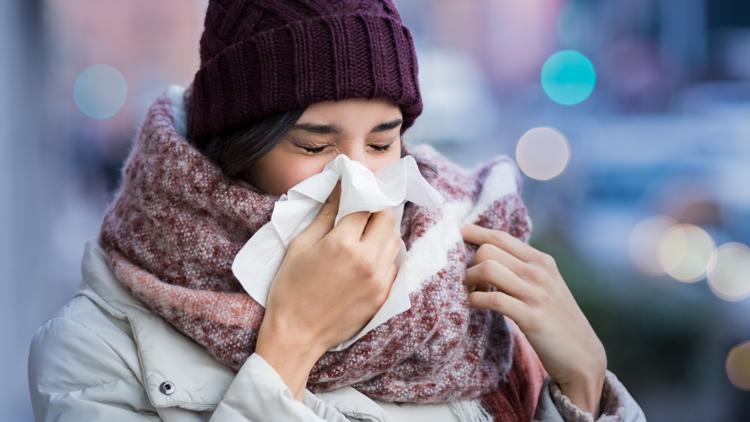BIRMINGHAM, Ala. — As the holiday season kicks into full gear, so does the overlap of colder weather and allergy season.
University of Alabama at Birmingham (UAB) experts say taking proactive steps to manage health challenges during this time of year is essential for enjoying the festivities with family and friends.
Jessica Grayson, M.D., associate professor in the UAB Department of Otolaryngology, stresses the importance of rest, a balanced diet, and avoiding sick contacts. ““To stay healthy this holiday season, make sure to get plenty of rest, eat a balanced diet with fruits and vegetables, and avoid contact with people who are sick,” Grayson said.
Recognizing the differences between seasonal allergies and a cold can also help individuals manage their health. Allergies, Grayson explains, do not typically cause a fever, but may trigger symptoms like sneezing, itchy or watery eyes, and a rash. In contrast, a cold often includes fatigue, a fever, and can last between seven to 10 days.
Grayson offers five practical tips for managing allergies and colds during the holidays:
Stay Hydrated
Staying hydrated is crucial for supporting the immune system. Drinking water helps thin mucus, which can relieve congestion. Warm beverages such as herbal teas provide comfort by soothing sore throats and helping clear sinuses.Maintain a Clean Environment
Indoor allergens like dust and mold can trigger allergy symptoms, especially when windows are closed and air circulation is limited during colder months. Grayson recommends cleaning high-traffic areas and places where people spend the most time to minimize allergens.Boost the Immune System
A healthy immune system can help protect against colds and ease allergy symptoms. Grayson advises a balanced diet rich in fruits, vegetables, and proteins. Vitamin C, vitamin D, and zinc supplements may help strengthen immunity, but it’s best to consult with a healthcare provider before taking any new supplements.Manage Stress
Holiday stress can weaken the immune system, making individuals more vulnerable to illness. Grayson suggests engaging in stress-relieving activities like yoga, meditation, or setting aside quiet time for self-care. Sleep is also critical for maintaining good health.Be Prepared with Over-the-Counter Medications
Having over-the-counter allergy medications on hand can provide relief. Grayson recommends ensuring you have medications available for known allergies and following dosage instructions. If symptoms persist or worsen, consulting a healthcare provider is advised.
For more information, visit UAB’s website.



